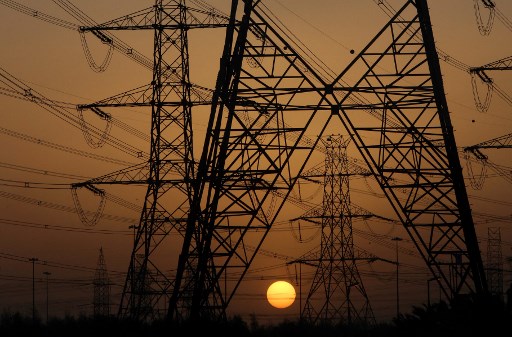
403
Sorry!!
Error! We're sorry, but the page you were looking for doesn't exist.
Egypt raises electricity prices by up to 50 percent amid economic reforms, IMF deal
(MENAFN) Egypt has implemented a significant increase in electricity prices for residential users, with hikes reaching up to 50 percent, according to government sources. This move is part of a broader economic reform strategy and an agreement with the International Monetary Fund (IMF) aimed at reducing subsidies. The adjustments come as the government continues its efforts to align domestic energy prices with market conditions and manage fiscal challenges.
The new pricing structure, which has been prepared by the Electricity Regulatory Authority and Consumer Protection, reflects an increase in electricity costs due to higher production expenses and fluctuations in the exchange rate. Additionally, the government’s decision to suspend load shedding during the summer, which cost approximately USD1.2 billion, has contributed to the need for higher electricity prices. This adjustment is intended to offset the financial burden and support the government’s economic reform agenda.
Under the revised pricing, the cost of electricity has increased across all consumption brackets. For instance, the price for the first bracket of 0 to 50 kilowatt-hours has risen from 58 to 68 piasters, marking a 17 percent increase. The second bracket, covering 51 to 100 kilowatt-hours, has seen a 15 percent rise from 68 to 78 piasters. The third and fourth brackets have also experienced increases of 14 and 24 percent, respectively. The most substantial increase is observed in the sixth bracket, where the price has jumped 50 percent from EGP 1.40 to EGP 2.10 per kilowatt-hour. The seventh bracket, for consumption exceeding 1000 kilowatt-hours, is now priced at 2.23 pounds, a 35 percent increase from the previous rate.
The new pricing structure, which has been prepared by the Electricity Regulatory Authority and Consumer Protection, reflects an increase in electricity costs due to higher production expenses and fluctuations in the exchange rate. Additionally, the government’s decision to suspend load shedding during the summer, which cost approximately USD1.2 billion, has contributed to the need for higher electricity prices. This adjustment is intended to offset the financial burden and support the government’s economic reform agenda.
Under the revised pricing, the cost of electricity has increased across all consumption brackets. For instance, the price for the first bracket of 0 to 50 kilowatt-hours has risen from 58 to 68 piasters, marking a 17 percent increase. The second bracket, covering 51 to 100 kilowatt-hours, has seen a 15 percent rise from 68 to 78 piasters. The third and fourth brackets have also experienced increases of 14 and 24 percent, respectively. The most substantial increase is observed in the sixth bracket, where the price has jumped 50 percent from EGP 1.40 to EGP 2.10 per kilowatt-hour. The seventh bracket, for consumption exceeding 1000 kilowatt-hours, is now priced at 2.23 pounds, a 35 percent increase from the previous rate.

Legal Disclaimer:
MENAFN provides the
information “as is” without warranty of any kind. We do not accept
any responsibility or liability for the accuracy, content, images,
videos, licenses, completeness, legality, or reliability of the information
contained in this article. If you have any complaints or copyright
issues related to this article, kindly contact the provider above.


















Comments
No comment